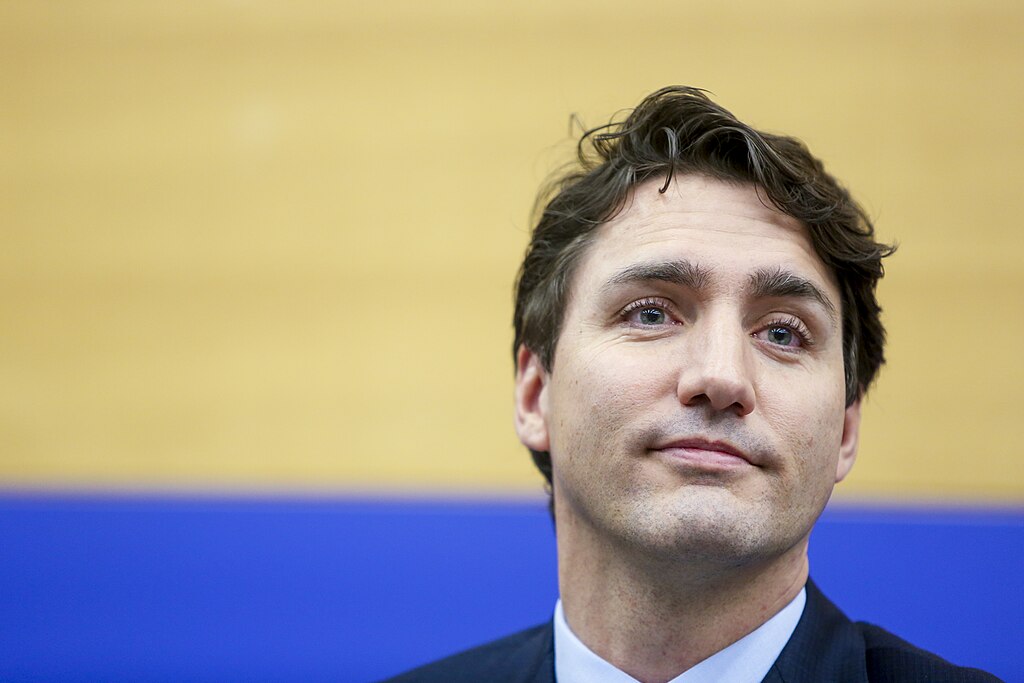Canadian Prime Minister Justin Trudeau has unveiled a groundbreaking immigration policy, signaling a significant shift in the nation’s approach to welcoming newcomers. The policy outlines substantial reductions in both permanent and temporary residents over the next three years, a move that has ignited sharp debates across the political spectrum.
The announcement marks a departure from Canada’s long-standing reputation as a global leader in immigration. Historically, Canada has relied on high immigration rates to address labor shortages and fuel economic growth. Trudeau, however, cited concerns over housing shortages, infrastructure strain, and rising public opposition as key drivers behind the decision.
Details of the Policy
Under the new plan, annual immigration targets will see a sharp decline beginning in 2025. The federal government aims to reduce permanent resident admissions by nearly 20% from previously planned levels. Temporary foreign worker programs and international student admissions will also face significant cuts, with the number of new entries expected to drop by over 15%.
The government defended the move as necessary to address growing public concerns. “Canada’s resources are finite,” a spokesperson for the Prime Minister's Office said. “This policy ensures that we balance population growth with sustainable development.”
Critics Slam the Decision
The policy has drawn criticism from immigration advocates, economists, and even some members of Trudeau's own party. Opponents argue that scaling back immigration could exacerbate existing labor shortages and hinder economic recovery. “Immigration is vital to Canada’s economic success,” said one opposition leader. “Reducing it during a time of global competition for talent is shortsighted.”
Business leaders have also voiced concerns, warning that curbing temporary foreign worker programs could disrupt key industries, including agriculture, construction, and healthcare. International students, who contribute billions to the Canadian economy, are another group expected to be significantly affected.
Meanwhile, advocacy groups warned the policy could harm Canada’s international reputation. “This sends a troubling message to the world,” said a spokesperson for a leading refugee organization. “Canada is retreating from its role as a global humanitarian leader.”
Supporters Praise “Responsible Governance”
On the other side of the debate, proponents of the policy have lauded Trudeau’s government for taking what they describe as a pragmatic approach. Housing affordability and infrastructure capacity were cited as critical issues, particularly in urban centers such as Toronto and Vancouver.
“This policy prioritizes Canadians first,” one supporter said. “Addressing the housing crisis and ensuring quality of life for residents must come before increasing immigration numbers.”
Trudeau’s government emphasized that the reductions are temporary and subject to annual reviews. Officials hinted that immigration levels could rise again once Canada’s housing and infrastructure challenges are addressed.
What’s Next?
As the new immigration policy takes shape, the Trudeau government faces mounting pressure to navigate competing priorities. With upcoming elections, the issue is set to dominate political discourse, polarizing voters across the nation.
For now, Canada braces for the immediate impacts of the policy, with critics and supporters watching closely as the nation’s immigration future hangs in the balance.



 Israel Launches Fresh Strikes on Iran After Death of Supreme Leader Ayatollah Khamenei
Israel Launches Fresh Strikes on Iran After Death of Supreme Leader Ayatollah Khamenei  Middle East Conflict Escalates After Khamenei’s Death as U.S., Israel and Iran Exchange Strikes
Middle East Conflict Escalates After Khamenei’s Death as U.S., Israel and Iran Exchange Strikes  Iran Supreme Leader Ayatollah Ali Khamenei Killed in Israeli, U.S. Strikes: Reuters
Iran Supreme Leader Ayatollah Ali Khamenei Killed in Israeli, U.S. Strikes: Reuters  Australian PM Calls Alleged Western Australia Terror Plot “Deeply Shocking” After Arrest
Australian PM Calls Alleged Western Australia Terror Plot “Deeply Shocking” After Arrest  Trump to Address Nation as U.S. Launches Strikes in Iran, Axios Reports
Trump to Address Nation as U.S. Launches Strikes in Iran, Axios Reports  U.S. Lawmakers Question Trump’s Iran Strategy After Joint U.S.-Israeli Strikes
U.S. Lawmakers Question Trump’s Iran Strategy After Joint U.S.-Israeli Strikes  Macron Urges Emergency UN Security Council Meeting as US-Israel Strikes on Iran Escalate Middle East Tensions
Macron Urges Emergency UN Security Council Meeting as US-Israel Strikes on Iran Escalate Middle East Tensions  Argentina Senate Approves Bill to Lower Age of Criminal Responsibility to 14
Argentina Senate Approves Bill to Lower Age of Criminal Responsibility to 14  Pentagon Leaders Monitor U.S. Iran Operation from Mar-a-Lago
Pentagon Leaders Monitor U.S. Iran Operation from Mar-a-Lago  Trump Announces U.S. Strikes on Iran Navy as Conflict Escalates
Trump Announces U.S. Strikes on Iran Navy as Conflict Escalates  Marco Rubio to Brief Congress After U.S.-Israeli Strikes on Iran
Marco Rubio to Brief Congress After U.S.-Israeli Strikes on Iran  Australia Rules Out Military Involvement in Iran Conflict as Middle East Tensions Escalate
Australia Rules Out Military Involvement in Iran Conflict as Middle East Tensions Escalate  Trump Says U.S. Attacks on Iran Will Continue, Warns of More American Casualties
Trump Says U.S. Attacks on Iran Will Continue, Warns of More American Casualties  EU Urges Maximum Restraint in Iran Conflict Amid Fears of Regional Escalation and Oil Supply Disruption
EU Urges Maximum Restraint in Iran Conflict Amid Fears of Regional Escalation and Oil Supply Disruption  UK Accepts U.S. Request to Use British Bases for Defensive Strikes on Iranian Missiles
UK Accepts U.S. Request to Use British Bases for Defensive Strikes on Iranian Missiles  U.S. Deploys Tomahawks, B-2 Bombers, F-35 Jets and AI Tools in Operation Epic Fury Against Iran
U.S. Deploys Tomahawks, B-2 Bombers, F-35 Jets and AI Tools in Operation Epic Fury Against Iran  Germany and China Reaffirm Open Trade and Strategic Partnership in Landmark Beijing Visit
Germany and China Reaffirm Open Trade and Strategic Partnership in Landmark Beijing Visit 































